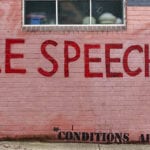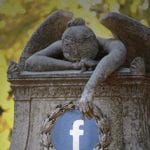 History
History  History
History  Weird Stuff
Weird Stuff 10 Wacky Conspiracy Theories You Will Need to Sit Down For
 Movies and TV
Movies and TV 10 Weird Ways That TV Shows Were Censored
 Our World
Our World 10 Places with Geological Features That Shouldn’t Exist
 Crime
Crime 10 Dark Details of the “Bodies in the Barrels” Murders
 Animals
Animals The Animal Kingdom’s 10 Greatest Dance Moves
 Movies and TV
Movies and TV 10 Box Office Bombs That We Should Have Predicted in 2025
 History
History 10 Extreme Laws That Tried to Engineer Society
 History
History 10 “Modern” Problems with Surprising Historical Analogs
 Health
Health 10 Everyday Activities That Secretly Alter Consciousness
 History
History 10 Dirty Government Secrets Revealed by Declassified Files
 Weird Stuff
Weird Stuff 10 Wacky Conspiracy Theories You Will Need to Sit Down For
 Movies and TV
Movies and TV 10 Weird Ways That TV Shows Were Censored
Who's Behind Listverse?

Jamie Frater
Head Editor
Jamie founded Listverse due to an insatiable desire to share fascinating, obscure, and bizarre facts. He has been a guest speaker on numerous national radio and television stations and is a five time published author.
More About Us Our World
Our World 10 Places with Geological Features That Shouldn’t Exist
 Crime
Crime 10 Dark Details of the “Bodies in the Barrels” Murders
 Animals
Animals The Animal Kingdom’s 10 Greatest Dance Moves
 Movies and TV
Movies and TV 10 Box Office Bombs That We Should Have Predicted in 2025
 History
History 10 Extreme Laws That Tried to Engineer Society
 History
History 10 “Modern” Problems with Surprising Historical Analogs
 Health
Health 10 Everyday Activities That Secretly Alter Consciousness
10 Times Social Media Shut Down Freedom Of Speech
As Evelyn Beatrice Hall once said, “I disapprove of what you say, but I will defend to the death your right to say it.” But now, in the age of social media, Hall’s moral position is under attack. Digital platforms are only too happy to remove accounts whose views differ from mainstream opinion. Social media users are forced to navigate a world in which their content might be deleted for challenging the status quo.
From neutered nationalists to gay censorship, social media bosses are willing to crack down on anyone who offends their advertisers’ fragile sensibilities. Here are ten ways that social media sites are strangling freedom of speech.
Top 10 Terrifying Assaults On Free Speech Happening Right Now
10 YouTube Removes Firearms Videos
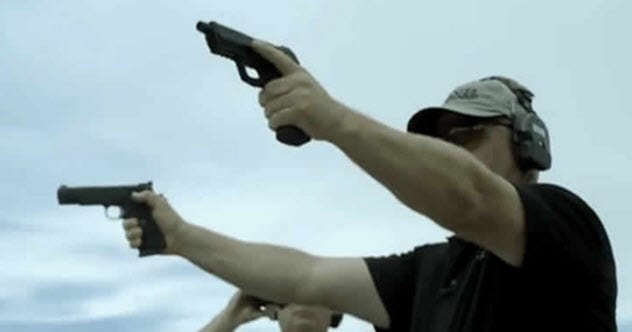
Gun ownership is one of the most divisive and hotly debated topics of our times. So when YouTube chose to remove a large portion of its firearms videos, it was bound to cause a stir.
In 2018, the video site brought in regulations banning content that “Intends to sell firearms or certain firearms accessories through direct sales…or links to sites that sell these items.” Under the restrictive new policy, YouTube has removed any video that teaches people to make guns and accessories. Videos that show users how to turn a firearm into an automatic weapon are also prohibited.
YouTube hosts thousands of channels dedicated to firearms. The sudden decision at censorship drew swift backlash from online gun owners. Spike’s Tactical, a Florida-based weapons manufacturer, hit out at YouTube for suspending their account without warning. “The Liberal Left will slowly chip away at our freedoms and erode our rights, and the first step is to squelch our voice,” a spokesperson explained. “To say we’re f-cking p-ssed is an understatement.”
InRangeTV, another firearms brand, was also outraged at the attack on their “freedom of expression on the internet.” They announced that they would be moving their banned videos to the adult site PornHub.
9 Snapchat Blocks Al Jazeera In Saudi Arabia
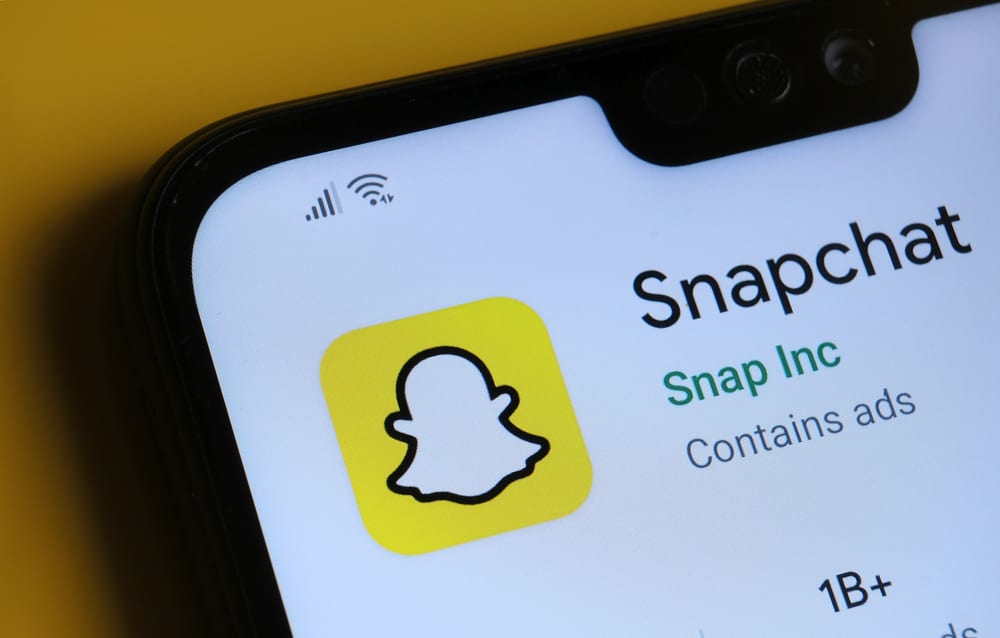
When most people think about political censorship, Snapchat is not the first name that comes to mind. The social media platform is known for being less restrictive and more open-minded than its rivals.
But in 2017, Snapchat made the controversial decision to ban the news network Al Jazeera in Saudi Arabia. The Saudi government asked for Al Jazeera’s Discover channel to be removed from the app. Saudi Arabia is ruled by a brutal regime with an atrocious human rights record. Nonetheless, Snapchat obliged and pulled Al Jazeera’s feed from the app.
Snapchat is enormously popular in Saudi Arabia, with around eight million users. The company explained that they are keen “to comply with local laws in the countries where we operate.” Exactly how Al Jazeera violates Saudi law remains to be seen.
Mostefa Souag, acting Director-General for the Al Jazeera Media Network, was highly critical of the company’s decision. “We find Snapchat’s action to be alarming and worrying,” he told reporters. “This sends a message that regimes and countries can silence any voice or platform they don’t agree with by exerting pressure on the owners of social media platforms and content distribution companies. This step is a clear attack on the rights of journalists and media professionals to report and cover stories freely from around the world.”
8 YouTube Deletes UK Drill Videos
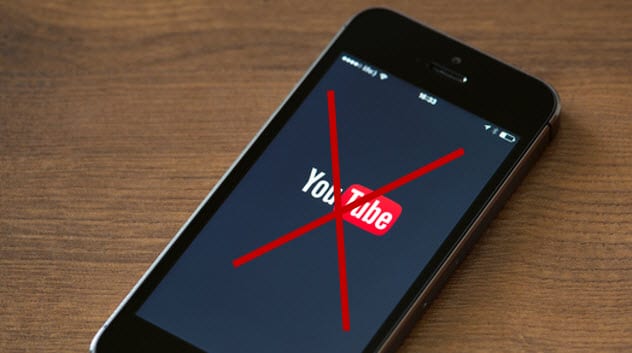
Hip-hop artists are no strangers to controversy. But even by the standards of rap music, the way in which the British government is censoring UK drill artists is alarming to watch. UK drill is a style of modern rap music. It was originally imported from Chicago and later embraced by the British underground. Over dark, minimal productions, young rappers relay unflinching stories about life for the UK underclass.
But the genre has come under fire for its violent lyrical content. In 2019, YouTube deleted 129 music videos at the request of the Metropolitan Police. One group, 1011, has been banned from uploading music altogether. UK drill duo Skengdo and AM were given a nine-month suspended prison sentence for performing a song at a concert.
Human rights organization Liberty branded the move “a troubling trend of alarmist attitudes increasingly restricting free expression.” Dimzy, a prominent musician in the UK drill scene, has accused the British police and media of “scapegoating” the genre.
7 Google Suspends Free Speech App
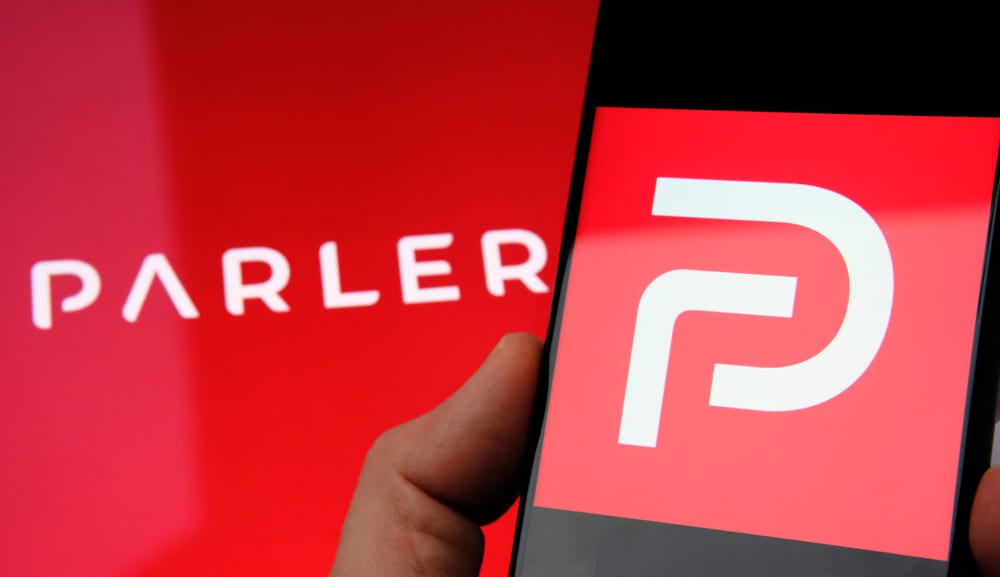
Parler prides itself on being a free speech social network app with no censorship. Launched in 2018, the platform has been embraced by supporters of the US Republican Party and people who have been blacklisted by Twitter. Texas Senator Ted Cruz has almost five million followers. Sean Hannity from Fox News has around seven million.
But Google has accused the app of ignoring posts that incite violence. Apple has also threatened to take the app down from its App Store. They claim the platform was used “to plan, coordinate, and facilitate” the 2021 attacks on US Capitol. Parler CEO John Matze says there is “no way to organise anything” on the app.
Matze refuses to comply with Google’s moderation requirements. “We won’t cave to politically motivated companies and those authoritarians who hate free speech!”
6 Facebook And YouTube Accused Of Supporting Repression In Vietnam
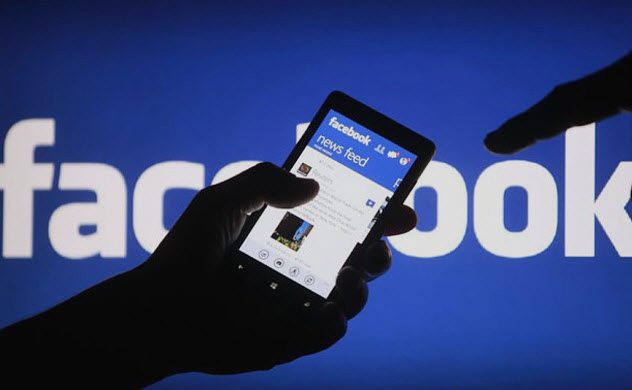
Amnesty International has accused Facebook and YouTube of supporting state censorship in Vietnam. Facebook has agreed to remove thousands of posts at the behest of south-east Asian authorities. The site made 834 restrictions in the first six months of 2020 alone. Much of the censored content refers to the Dong Tam land dispute. Since 2017, Dong Tam locals have been locked in a violent dispute with the military over land rights.
In 2020, Amnesty International reported that 170 prisoners of conscience are being detained in Vietnam. Of those, 69 were locked up due to online content.
“Facebook is by far the most popular and profitable platform in Vietnam,” explained Amnesty International’s Ming Yu Hah. “Today these platforms have become hunting grounds for censors, military cyber-troops and state-sponsored trolls. The platforms themselves are not merely letting it happen – they’re increasingly complicit.”
5 TikTok Censors Gay Content
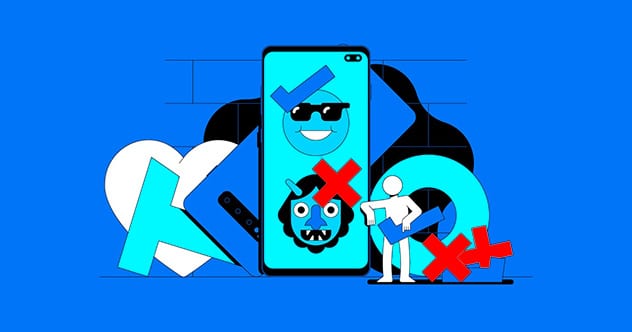
In 2019, TikTok was accused of prejudice against gay users. The social media platform has been criticized before for erasing videos. Moderators are known to ban topics that are sensitive to the Chinese government. Clips relating to Tiananmen Square, Falun Gong, and Tibet have all been removed.
It later emerged that, in certain countries, TikTok was also censoring gay content. Users were outraged to learn that videos of same-sex couples engaging in “intimate activities” were banned. Any clips of homosexuals kissing, or even holding hands, were pulled from the app in some parts of the world. They blocked “reports of homosexual groups, including news, characters, music, tv show, pictures.” Pride parades and pro-gay slogans were also removed.
4 Twitter Deletes Venezuelan Accounts
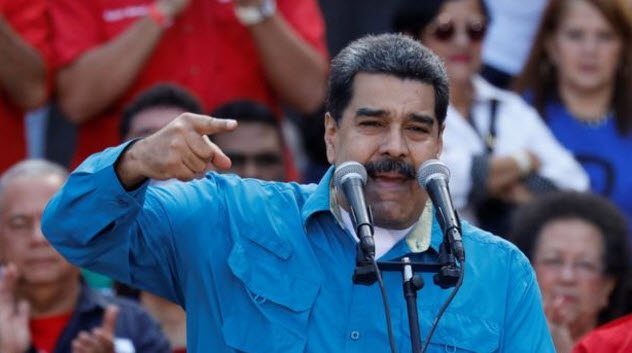
Venezuela is known for its volatile political condition. In 2019, Twitter deleted almost 2,000 accounts. They belonged to supporters of the Venezuelan government. The site removed 1,196 accounts for allegedly “influencing domestic audiences.” A further 764 were taken down for reasons that were never fully justified.
Journalists were quick to condemn Twitter’s actions. Abby Martin, the host of the series Empire Files, blamed the social media site for “actively censoring pro-government accounts.” President Nicolás Maduro called it an “expression of fascism.” A year and a half earlier, Twitter had suspended the accounts of several Venezuelan officials. The site has also been accused of spreading false information about the Latin American country.
3 Polish Nationalists Fight Back Against Censorship
Poland is growing tired of social media censorship. In January 2021, PM Mateusz Morawiecki announced that he would be cracking down on “authoritarian” suppression. The Polish justice ministry plans to make it illegal for social media sites to remove content unless it breaks the country’s laws. Morawiecki has urged the European Union to follow suit.
The Polish PM was a prominent anti-communist during the 1980s. “We lived in a censored country for nearly 50 years, a country where Big Brother told us…what we don’t have the right to think, to say, to write,” he explained. “That is why we look with concern at any attempts to limit freedom.” Morawiecki went on to call the internet, “the most democratic medium in history.”
However, some figures argue that there is hypocrisy to Morawiecki styling himself as a free speech advocate. A recent study by the OSCE found that Poland has some of the harshest defamation laws in the world today. There is a potential two-year prison sentence for the crime of “offending religious feelings.” It is also illegal to insult the president, monuments, and the Polish state.
2 Twitter Blocks Former President Trump’s Account Permanently
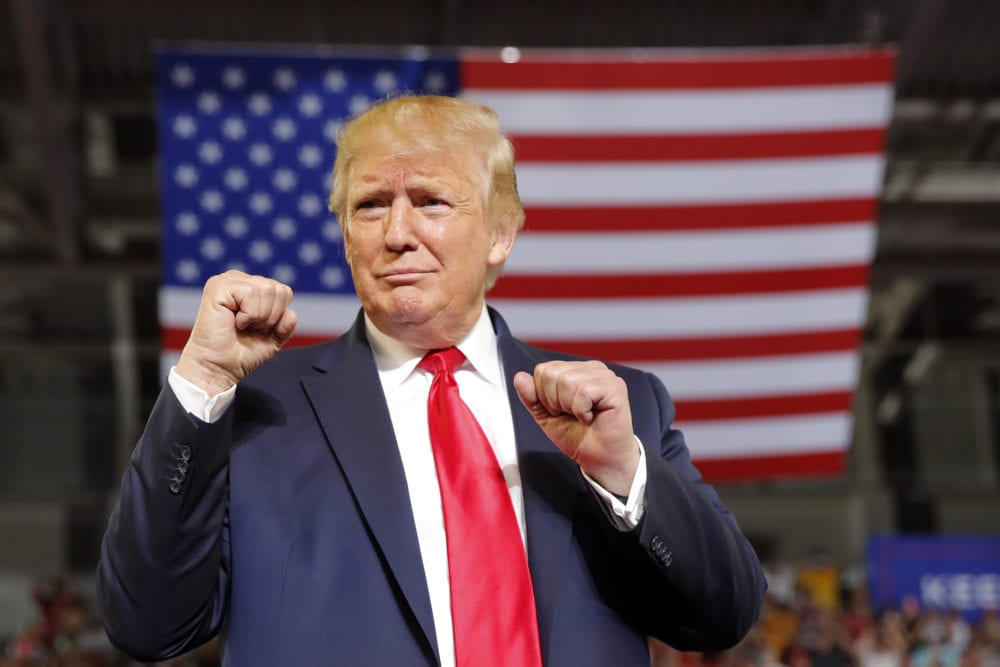
In February 2021, Twitter announced that they had permanently banned Donald Trump from the platform. Ned Segal, the site’s chief financial officer, confirmed that the former US president was removed for life. If Mr Trump ever runs for power again, even if he wins, Twitter will never reinstate his account.
The social platform made the controversial decision to remove Mr Trump after the storming of the US Capitol building. The company claims to have banned him “due to the risk of further incitement of violence.”
1 Twitter Deletes Posts Reporting On India’s Attacks On Kashmir
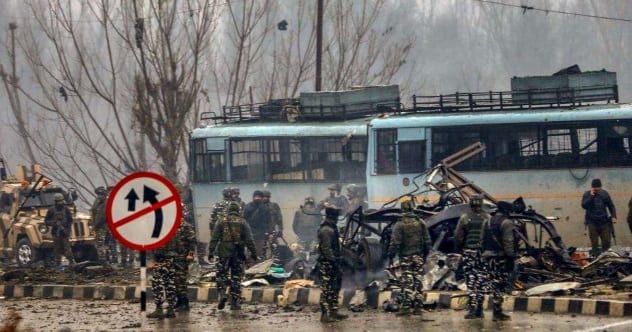
Kashmir is no stranger to foreign attacks. The South Asian region has endured decades of assaults. Now, as well as increased repression from the Indian government, the country faces censorship on Twitter. In recent years, the site has removed hundreds of thousands of tweets. Many of the deleted messages were written by journalists criticizing the regime of Indian PM Narendra Modi.
In Kashmir, locals often use social media to voice their dissatisfaction with the government. But since 2017, almost a million tweets have been taken down. Amnesty International’s Akar Patel called it a “fundamental deprivation of freedom of expression.” One journalist had his account blocked for tweeting about human rights violations against people living in Kashmir. Only after deleting those messages was his account restored.
In August 2019, officials revoked Article 370 from the Indian constitution. This stripped Kashmir of its autonomous status and brought it under the full control of the Indian government.
Top 10 Ways Google Is Censoring Free Speech



